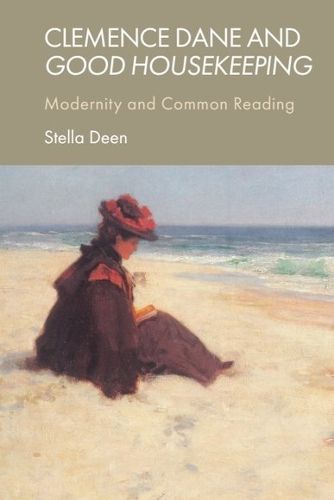Readings Newsletter
Become a Readings Member to make your shopping experience even easier.
Sign in or sign up for free!
You’re not far away from qualifying for FREE standard shipping within Australia
You’ve qualified for FREE standard shipping within Australia
The cart is loading…






Clemence Dane and Good Housekeeping: Modernity and Common Reading examines Dane's tenure as a literary critic for Good Housekeeping between 1923 and 1933, firmly locating it within a vibrant interwar periodical culture. By expressing confidence in a shared literary heritage, modelling enjoyment of a wide variety of literature and linking women's reading habits to the revitalisation of national literary culture, Dane's serial essays implicitly challenged academic and modernist approaches to literature. Moreover, Dane's monthly book pages, in dialogue with book authors and with other feminist contributors, fulfilled and exceeded Good Housekeeping's mission by preparing women for their new responsibilities as British citizens. Dane's journalism sheds new light on the heterogeneity intrinsic to quality domestic magazines and the roles they played in fostering women's multi-faceted modern identities. Stella Deen demonstrates that Dane's corpus of Good Housekeeping essays makes a significant contribution to the conceptualisation of the common reader and to the history of twentieth-century literary criticism.
$9.00 standard shipping within Australia
FREE standard shipping within Australia for orders over $100.00
Express & International shipping calculated at checkout
Clemence Dane and Good Housekeeping: Modernity and Common Reading examines Dane's tenure as a literary critic for Good Housekeeping between 1923 and 1933, firmly locating it within a vibrant interwar periodical culture. By expressing confidence in a shared literary heritage, modelling enjoyment of a wide variety of literature and linking women's reading habits to the revitalisation of national literary culture, Dane's serial essays implicitly challenged academic and modernist approaches to literature. Moreover, Dane's monthly book pages, in dialogue with book authors and with other feminist contributors, fulfilled and exceeded Good Housekeeping's mission by preparing women for their new responsibilities as British citizens. Dane's journalism sheds new light on the heterogeneity intrinsic to quality domestic magazines and the roles they played in fostering women's multi-faceted modern identities. Stella Deen demonstrates that Dane's corpus of Good Housekeeping essays makes a significant contribution to the conceptualisation of the common reader and to the history of twentieth-century literary criticism.